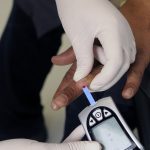Navigating the Career Roadmap of a Clinical Scientist: Essential Steps for Success
Embarking on a career as a clinical scientist can be both exhilarating and daunting. The path is woven with challenges, opportunities, and an insatiable thirst for knowledge. Herein lies a roadmap, punctuated by essential milestones that can guide aspiring clinical scientists towards success.
1. Educational Foundation
The journey typically begins with a robust academic background. A relevant undergraduate degree in biomedical science, chemistry, or a related field is crucial. However, mere possession of a degree isn’t sufficient. Pursuing further education, such as a Master’s or PhD, can significantly bolster one’s expertise and employability. Specialisation in areas like clinical biochemistry or microbiology can set candidates apart in a competitive job market.
2. Gaining Practical Experience
Theory and practical application must go hand in hand. Engaging in placements, internships, or laboratory assistant roles provides invaluable hands-on experience. Such opportunities not only hone technical skills but also cultivate an understanding of the complexities involved in clinical research. Volunteering in healthcare settings can also enrich one’s perspective, offering insights into patient interactions and the healthcare ecosystem.
3. Networking and Professional Development
Building a robust professional network is paramount. Attending conferences, and seminars, and participating in workshops can introduce aspiring scientists to key figures in the industry. Engaging with professional bodies, such as the Institute of Biomedical Science (IBMS), can provide access to resources and mentorship opportunities that are instrumental in career advancement.
4. Continuous Learning
The realm of clinical science is ever-evolving. Keeping abreast of the latest developments, technologies, and methodologies is essential. Subscribing to relevant journals, enrolling in online courses, and participating in post-graduate training can ensure that one remains at the forefront of scientific advancements. Lifelong learning is not merely a suggestion; it’s a necessity.
5. Mastering Soft Skills
While technical prowess is vital, soft skills can often be the deciding factor in one’s success. Effective communication, teamwork, and problem-solving abilities are crucial in a clinical environment where collaboration is key. Mastering these skills can enhance one’s ability to work with multidisciplinary teams, ultimately leading to improved research outcomes and patient care.
6. Navigating Career Progression
The path to advancement typically involves a series of strategic moves. Gaining experience in clinical trials, research projects, or leadership roles can pave the way to senior positions. Aspiring clinical scientists should set clear career goals, whether it be leading research teams, specialising further, or transitioning into academia. Aligning personal ambitions with organisational goals can facilitate a smoother ascent.
Charting Your Course
In the vast and intricate landscape of clinical science, success is a blend of education, experience, networking, and continuous personal development. Each step taken is a building block towards a fulfilling career. As one navigates this complex roadmap, remember that resources like CVPortal continually provide high-quality CV examples and guidance, ensuring that you present your best self to potential employers in this competitive field. Embrace the journey, for it is as rewarding as the destination.


